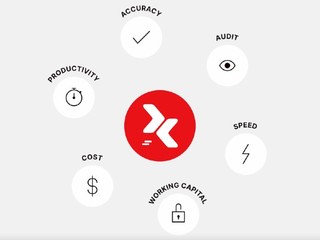 Every year, close to $265 billion in claims made by US healthcare organizations are denied because of the way claims are coded on payor documentation. In fact, coding errors account for over 40% of claim denials, while untimely submissions contribute to 35% of denials.
Every year, close to $265 billion in claims made by US healthcare organizations are denied because of the way claims are coded on payor documentation. In fact, coding errors account for over 40% of claim denials, while untimely submissions contribute to 35% of denials.
All of this has a negative effect not just on the healthcare organizations, but on the patients as well, said Dushyant Mishra, CEO RapidClaims an autonomous medical coding and documentation company that emerged from stealth with a $3.1 million funding round on Thursday.
“Denied claims mean denied revenue to the hospitals. Hospitals spend significant amounts of money to treat patients. If the claims get denied it’s a direct hit on the revenue,” he explained.
“Also, if the insurance companies deny claims, some burden of it goes on to the patients. The total patient medical debt in the US is $220 billion. Patients and hospitals both are financially stressed.”
RapidClaims’ solution is to integrate with a health systems’s existing electronic health record (EHR). After a patient visit is over the company takes the patient charts into its system, its AI reads the charts in detail as a human coder would, and then comes up with relevant diagnosis and procedure codes. Coders can also come onto the platform to check the codes generated by AI and audit the charts.
Its products include RapidCode for fully autonomous medical coding; RapidAssist, a tailored tool for medical coders designed to improve productivity by auditing charts and identifying documentation gaps; and RapidRisk, advanced AI for risk-adjusted coding that calculates HCC and RAF scores while pinpointing opportunities for documentation improvement.
So far, the company completed six pilots within two months of its beta launch in June 2023 and found that it was able to reduce costs by more than 30%, reduce claim denials by more than 70% that are coming from medical coding related errors, and reduce overall coding time by more than 60%.
One physician group in Florida, for example, that used RapidClaims was able to scale its team rather than hiring new codes, while also reducing the necessary number of coders to just 30% of the current team, allowing these workers to take on critical tasks.
While there are other companies that are taking an AI-first approach to coding, such as Fathom Health, Nym Health, and Codametrix, RapidClaims differentiates itself in a few different ways, including its product, which only automates coding, specializing in radiology and emergency departments but also provides a user-friendly platform for medical coders to audit and edit charts.
“Our product is a mix of the finest features of autonomous operation, AI assistance, and auditing tools. We also provide all types of coding, including ICD, CPT, HCC, E&M, and HCPCS, setting us apart from competitors who may specialize in only one or a few coding types,” said Mishra.
The company also differentiates itself by combining clinical knowledge graphs with large language models and biomedical embeddings so that medical codes that can be tuned to hospital coding styles with minimal examples, unlike Fathom Health, which is based on deep learning, and Nym Health’s tech, which is based on computational linguistics.
RapidClaims’ seed round was led by Together Fund, with participation from Better Capital, Neon Fund, Peercheque, and DeVC. The round also included angels and advisors such as Oscar Benavidez, Executive Director at Mass General; Ankit Jain, founder and CEO of Infinitus; and Sachin Jain, President and CEO of Scan Health.
The funding will mostly be deployed into product development and team expansion to support the company’s clients.
“Before entering this segment, our focus has consistently been on enhancing the efficiency of payor-provider financial communication. Looking ahead, we envision a seamless integration of both systems through the utilization of AI and APIs, with RapidClaims playing a pivotal role in facilitating this synergy,” Mishra said.
“We, fortunately, have a great set of mentors who are guiding us with strategic steps towards this future. RapidClaims will continue to move ahead and build products for the revenue cycle management suite. The timing of it will be guided by a lot of parameters. But for the next few years, we are singularly focused on extending our coding AI module to a broader customer base, delving deeper into specialized areas and refining product intricacies.”
(Image source: rapidclaims.ai)















